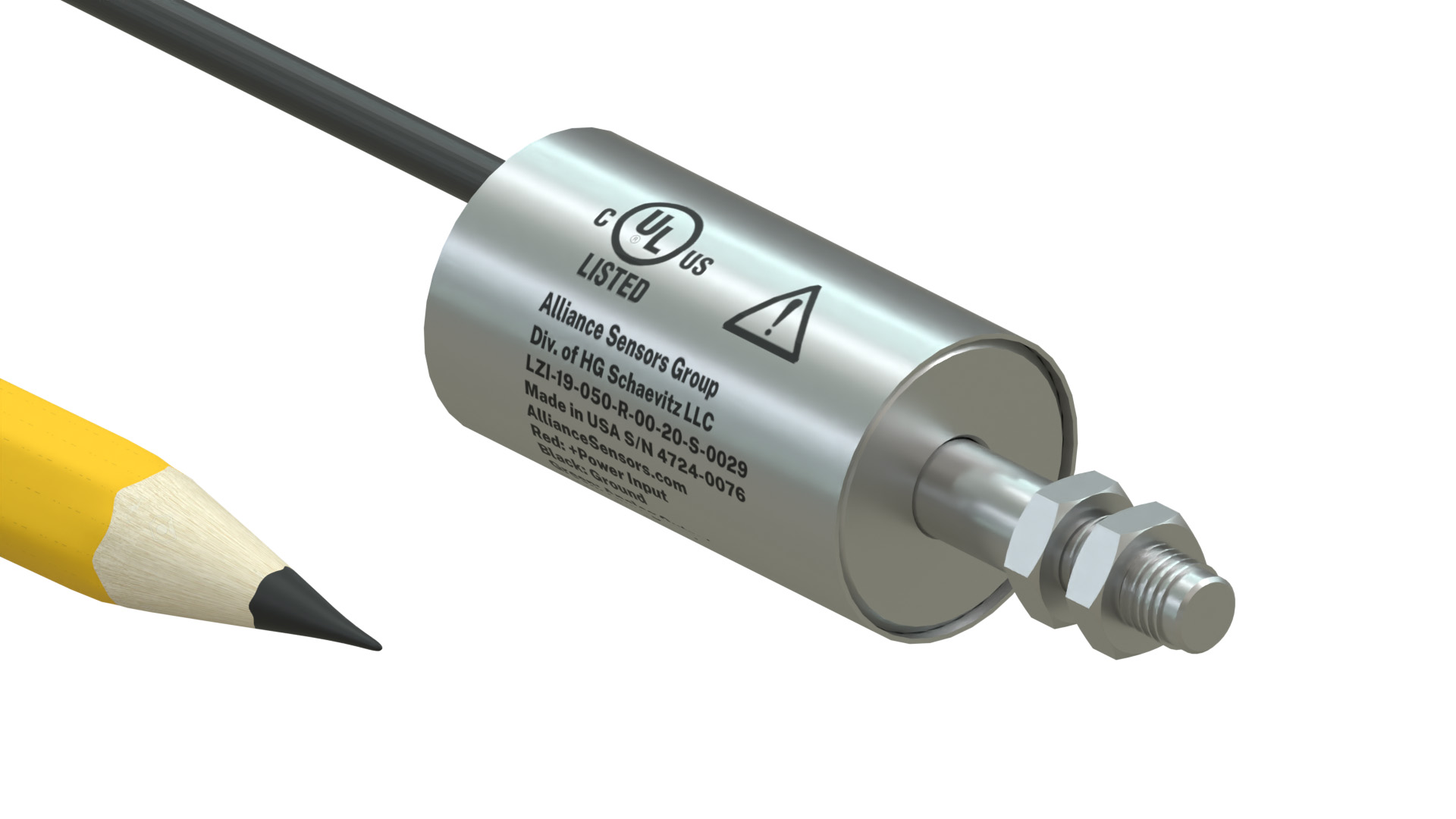Mechanically Linked LVITs
Pricing or Technical Questions?Contact Us
• Linear Variable Inductive Transducer (LVIT)
• 0.75" (19 mm) diameter body
• Stroke lengths available from 25 to 200 mm (1 to 8 inches)
• ILPS-19 is Automation & Motorsports duty
• Sensing element is contactless, virtually wear-free
• Tested to over 110 million cycles
• Rod End Joints for simple mounting
• Environmental rating of IP67 (Dust tight, Short term water immersion)
• A more robust alternative to Linear Potentiometers
• Linear Variable Inductive Transducer (LVIT)
• 1.05" (27 mm) diameter body
• Stroke lengths available from 50 to 450 mm (2 to 18 inches)
• ILPS-27 is Industrial duty
• Sensing element is contactless, virtually wear-free
• Tested to over 110 million cycles
• Rod End Joints for simple mounting
• Environmental rating of IP67 (Dust tight, Short term water immersion)
• A more robust alternative to Linear Potentiometers
• Linear Variable Inductive Transducer (LVIT)
• 1.75" (45 mm) diameter body
• Stroke lengths available from 100 to 450 mm (4 to 18 inches)
• ILPS-45 is Heavy duty
• Sensing element is contactless, virtually wear-free
• Tested to over 110 million cycles
• Rod End Joints for simple mounting
• Environmental rating of IP67 (Dust tight, Short term water immersion)
• A more robust alternative to Linear Potentiometers
• Linear Variable Inductive Transducer (LVIT)
• 0.50" (13 mm) diameter body
• Stroke lengths available from 2.5 to 200 mm (0.1 to 8 inches)
• Through-bore design
• Sensing element is contactless, virtually wear-free
• Tested to over 110 million cycles
• Environmental rating of IP67 (Dust tight, Short term water immersion)
• A more robust alternative to Linear Potentiometers
• Linear Variable Inductive Transducer (LVIT)
• 0.375" (9.5 mm) diameter body
• Stroke lengths available from 6.4 to 150 mm (0.25 to 6 inches)
• Through-bore design
• Sensing element is contactless, virtually wear-free
• Tested to over 110 million cycles
• Environmental rating of IP67 (Dust tight, Short term water immersion)
• A more robust alternative to Linear Potentiometers
• LVIT Technology(Linear Variable Inductance Transducer)
• UL and CUL approved for Class 1 Div 2 Groups C and D locations
• Contactless operation prevents wearout from dithering or cycling
• Excellent stroke-to-body ratio
• Full Scale ranges from 0.1 to 30 inches (2.5 to 750 mm)
• Environmental rating of IP67 (Dust tight, Short term water immersion)
• Through-bore design eliminates mechanical overstroking
• Proprietary SenSetfield adjustable range scaling
• DC in / DC out operation with built-in electronics






